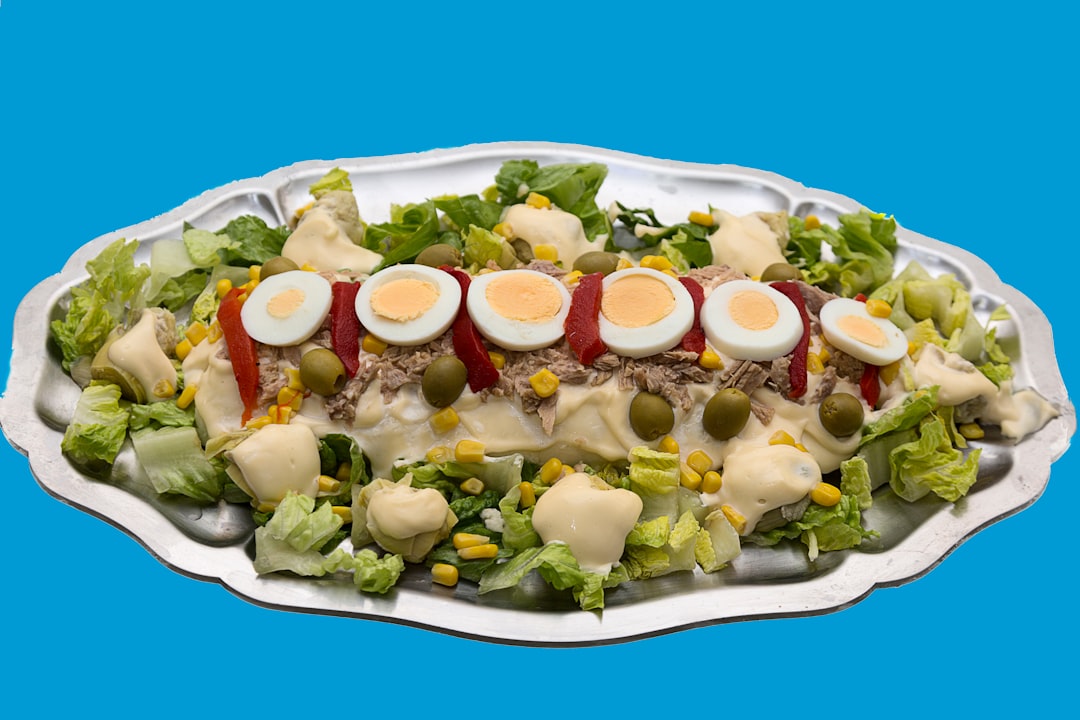Olivier salad
While the Olivier salad has become commonplace in modern Russian cuisine, it's actually much more than its simple ingredients would suggest. The dish is an homage to the past, offering an abundant mix of flavors that can't be found elsewhere. It's also a testament to the unique fusion of cultures that make Russia such a fascinating place - as well as a way for Russian chefs to show off their culinary acumen.
At its most basic, the Olivier salad is a combination of fresh vegetables and creamy mayonnaise, but in reality it's so much more than that. Generally speaking, chefs tend to give the salad their own spin by adding various types of meat, seafood or cheeses. By doing so, they take advantage of the many flavor options available to them to create something truly out of the ordinary.
Beyond its interesting flavor profile, the Olivier salad manages to bring together several diverse textures. The crunch of the pickles and capers pair nicely with the smoothness of the potatoes, while the green peas provide an unexpected burst of sweetness. Finally, the onions give the salad a bit more depth, allowing the other flavours to really stand out.
For many years, the Olivier salad has been a cornerstone of Russian cuisine, and it's easy to see why. With its bold tastes and varied textures, it's the perfect accompaniment to any meal and a delicious way to experience the country's rich food culture.
Olivier salad recipes
Amazing Olivier salad recipes sourced from the web.
The origin of Olivier salad
The celebrated and enigmatic Olivier Salad has been a staple of Russian cuisine for well over a century, though the exact-origin of this delectable delight has been the subject of much conjecture. The dish was purported to have been invented in the 1860s by Lucien Olivier, a highly esteemed chef of the Hermitage Restaurant in Moscow. An attempt to recreate the French-style Salade Française by Olivier, it quickly became a favorite among Russian high-society of the era.
The key ingredient of Olivier Salad is potato, but that’s where its simplicity ends. While its evolution has seen over the years an increase in ingredients to include poultry, vegetables, egg, onion, pickles, capers, mayonnaise, and herbs, its original version contained grouse, veal tongue, smoked duck, crayfish tails, caviar, lettuce, and a secret mustard-based dressing.
Though it’s exact recipe has been lost to time, even more fascinating is the legend behind its invention. While preparing dinner for a dinner party at his restaurant, Olivier noticed a customer plotting against him, presumably to steal his recipe. To combat this threat, he reportedly replaced many of the ingredients with others of lesser-cost, thus keeping the contents of the salad a closely guarded secret.
Though there are now modern variations with fancier ingredients, such as shrimp and lobster, there is no denying the Olivier Salad’s illustrious place in Russian cuisine. A treasured part of holiday celebrations and family gatherings, it’s a tasty reminder of a simpler time where secrets could be kept close and creative genius could reign supreme.
Types of Olivier salad
Olivier salad is one of the oldest dishes in Russian cuisine and has become an integral part of many celebrations, ranging from birthdays to holidays. The traditional version of the dish dates all the way back to the 19th century and was created by a chef named Lucien Olivier. Although this version of the salad used crayfish tails, smoked duck and a secret sauce, over the years its recipe has changed significantly.
Today, there are countless variations on the Olivier Salad. While the core ingredients always remain the same - potatoes, carrots, pickles, eggs, onions and mayonnaise - other additions such as chopped ham, smoked fish or canned peas can be added for a more contemporary twist. Some recipes also include apples, mushrooms and various herbs, making the Olivie even more festive and flavorful.
There are even vegetarian versions of the Olivier salad, which usually substitute the meat ingredients for mushrooms, beans or soya proteins. This type of salad is often served with a side bowl of fresh vegetables, such as cucumbers, tomatoes and bell peppers. This creates a colorful and succulent overall dish that pairs perfectly with a chilled glass of white wine or vodka.
The debate over which type of Olivier salad is the "best" still continues today. But no matter what version you prefer, you can be sure that the Olivier salad will always be a classic favorite at any gathering or celebration. Whether it's the traditional version or one with a modern twist, the hearty and flavorful Olivier salad is sure to tantalize your taste buds.



